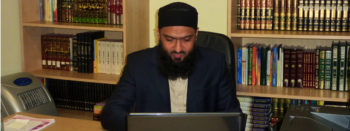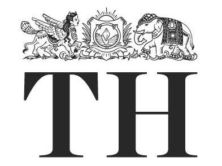
Imam Shakeel Begg (Credit: Lewisham Islamic Centre)
BBC broadcaster Andrew Neil said a London imam “hailed jihad as ‘the greatest of deeds.'” So the imam, Shakeel Begg, sued for libel. While Begg denied he was an extremist speaker, the BBC pointed to Begg’s speeches in 2006 to 2011 and the court agreed that Begg “espoused extremist Islamic positions” in those speeches, and in some also “promoted or engaged religious violence.”
Ultimately, the court found that the BBC had “an overwhelming case of justification” for its claims.
Begg, the imam of Lewisham Islamic Centre in London, sued over a Nov. 3, 2013 broadcast of the BBC One show Sunday Politics.
The BBC said in a statement to iMediaEthics
“We were right to stand by the journalism of Sunday Politics. The judge has concluded, based on the evidence, that Imam Begg has preached religious violence and an extremist worldview in his remarks.”
iMediaEthics has written to Begg’s centre for comment.
In a press release, the BBC explained, “The BBC defended the case on the basis that the broadcast was substantially true relying upon evidence from six speeches given by Begg to a variety of Muslim audiences between 2006 and 2011.”
When Begg’s argument that he wasn’t an extremist was reviewed against the BBC’s evidence to the contrary, the court found Begg was “something of a ‘Jekyll and Hyde’ character.” The court wrote:
“The Court concluded that that Mr Begg was something of a ‘Jekyll and Hyde’ character: he presented one face to the local and inter-faith community and another to particular Muslim and other receptive audiences. Thus, on the occasions when it has suited him – and he was speaking to predominantly Muslim audiences and/or audiences who might be receptive or sympathetic to his message – he shed the cloak of respectability and revealed the horns of extremism. His reputation for respectability is likely to have made his (extremist) messages all the more compelling and seductive to his audiences. For this reason, therefore, his words would have been all the more effective and dangerous.”
The BBC did make two errors “as to the precise location and timing of his speeches” but that didn’t affect the case, the court decided.
While the trial took place between June 27 and July 1, 2016, the judge’s verdict only came down Oct. 28.
The full verdict is published on the UK Judiciary’s website here.
Hat Tip: The Guardian






